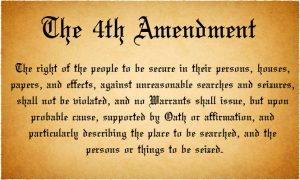Ever since the U.S. Supreme Court ruled that police must have warrants to draw blood from DUI suspects, defendants accused of DUI in Los Angeles and their lawyers have been working to get any incriminating blood evidence suppressed in their trials. (Those convicted of DUI have been trying to get their convictions overturned.) Such efforts have been successful in many state and local courts throughout the country.
California prosecutors and defense attorneys are watching one case in San Mateo County that involves vehicular manslaughter. On October 5, 2013, 27-year-old Zachary Katz drove the wrong way on U.S. Highway 101 and slammed into another car. The crash ejected both occupants of the other vehicle, killing one and seriously injuring another, according to Palo Alto Online.
When police officers did a preliminary blood screening on Katz, his blood alcohol content measured 0.15. Two hours later, a hospital test showed it to be 0.13. Both readings are well over the legal limit of 0.08.
A San Mateo County Superior Court judge ruled in October 2015 that prosecutors could not use the blood tests because the officers had not explained the implied consent law to Katz before taking the sample. But the California First District Court of Appeals reversed that ruling last March. The California Supreme Court agreed with the appeals court ruling, refusing to hear the case.
Then came the U.S. Supreme Court ruling in Birchfield vs. North Dakota. The justices decided that while warrantless breath tests for DUI were okay under the Fourth Amendment, authorities would have to get a warrant for a blood alcohol test. The argument is that the BAC test is more invasive and thus raises privacy concerns.
Katz’s attorney will be appearing in court on September, arguing that the Birchfield ruling applies to his client’s case and that the court should therefore throw out that evidence in his case.
The experienced DUI attorneys at Kraut Law Group Criminal & DUI Lawyers, Inc. can help with your defense. Call our team today to schedule a consultation.
